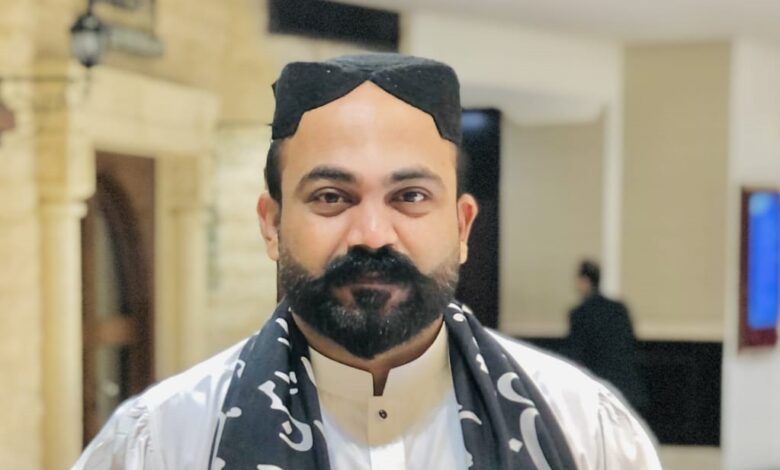
Khalida Niaz
In a candid narrative, Haseeb Iqbal, a devoted social activist rooted in Bahawalpur, Punjab, delved into the profound impact of the Jaranwala incident on his well-being and the broader societal fabric of Pakistan. Armed with an MPhil in Social Work, Iqbal has passionately championed the cause of minority rights, women's empowerment, and peace for over a decade.
Reflecting on the tragic events in Jaranwala, Iqbal stressed the collective responsibility of acknowledging that those involved are part of the same society. His expression of shame underscores a critical awareness of the incident's far-reaching consequences, tarnishing the nation's global image.
Raised in an environment shaped by his mother's active involvement in social work, Iqbal's early fascination with Hinduism led him to embark on a journey of exploration in Mithi and Tharparkar. Beyond theoretical interest, his initiatives extend practically to promoting religious harmony, particularly addressing the treatment of minority communities within educational institutions in Karachi and South Punjab.
Also Read: Khyber Pakhtunkhwa Readies for New Caretaker Cabinet Amidst Political Transitions
The challenges woven into Iqbal's advocacy narrative include the expected societal resistance and a more contemporary form of opposition: social media backlash, including unfriending and boycotts. Undeterred by these obstacles, Iqbal remains resolute in his commitment to fostering unity, understanding, and a shared sense of responsibility.
The recognition of Iqbal's efforts comes from numerous accolades, including the prestigious Peace Rights Activist Award and Human Rights Activist Award. His unwavering dedication persists despite the inherent risks associated with advocating for peace, highlighting the imperative need for effective policy implementation to counteract the growing tide of religious extremism within Pakistan.